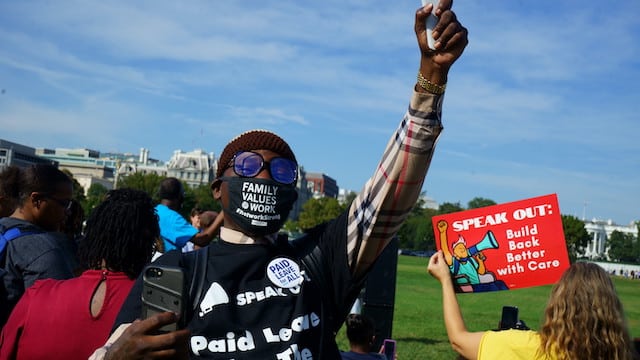Oregon

On January 1, 2014, Portland’s new paid sick days law kicked into effect. Passed unanimously by the Portland City Council in March 2014, this policy makes it possible for workers in Portland to stay home from work to care for themselves or a loved one when that routine illness strikes (as it inevitably does)!
To make this a reality, we brought together a broad coalition of non-profit, union, business supporters, and elected officials to solve this community problem. The Oregon Work and Family Coalition is coordinated by Family Forward Oregon with assistance from Children First for Oregon. The coalition is comprised of organizations representing seniors, women, children, working families, persons of color, faith communities, low-income workers, labor, health professionals, and employers.
We are committed to advocating for policies that promote family economic security and support vital family care work. We have recently worked on bills to establish a Work and Family Task Force, to expand the Oregon Family Leave Act, to create employee protections against wage theft, and to ensure child care is affordable for working parents through Employment Related Day Care legislation. The Coalition is actively mobilizing around paid sick leave.
In the Oregon we envision:
- Our parents won’t have to choose between caring for their children or keeping their job.
- Our disabled and aging family members will have the care they need when they need it most.
- Our children will be healthy, well-cared for and thriving.
- Our workers will have time off to recover when they’re sick.
- Our businesses will be profitable while also offering modern workplace standards that improve productivity and worker health.
To get there, we’re working on policies like: paid family leave, access to paid sick days, state disability insurance, workplace flexibility, affordable child care, protection from discrimination for family caregiving responsibilities, job protection under state family leave laws, and more.